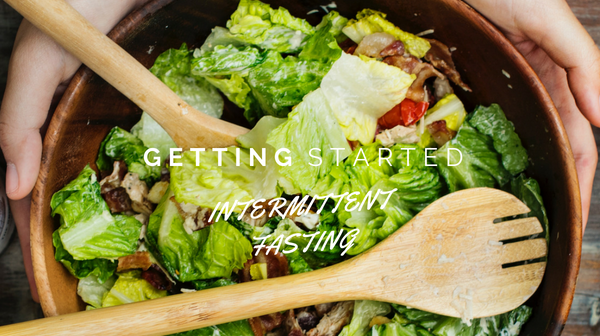So, you have heard about it, done some research online or talked with a friend or colleague or watched a video or two … and you’ve decided to give intermittent fasting a try. First, congrats on taking the first step. Before you start here are some pointers to think about.
- Talk with Your Doctor or Health Care Practitioner
While intermittent fasting, done properly, is completely “natural and health” some Individuals experiencing medical conditions such as diabetes or high blood pressure will require more careful monitoring during intermittent fasting and in some cases may be prevented from doing it altogether.
- Plan, plan, plan
I cannot emphasis this enough. As they say – think before you leap. And while intermittent fasting is less a leap than a step or two off a traditional dieting approach planning is key. Think about how long you want to try intermittent fasting for and make sure that your calendar is clear of office, family or friend event/parties.
I have had clients on my program, using intermittent fasting, who do have had office events and do manage to function perfectly well, but it is certainly easier if you c an avoid such events especially on your first attempt.
an avoid such events especially on your first attempt.
- Remove the Temptation
Clear out your freezer, refrigerator and cupboard from temptations that are not part of the program. Perhaps this may sound a bit simplistic or silly but many of my clients find it a lot easier is “distractions” are removed from site. Intermittent fasting combines modifying when you eat and for most people what you eat as well, for more information on Intermittent Fasting check out Secret Benefits of Intermittent Fasting, Top 5 Reasons People Fail or watch my video …). For me its MILK chocolate, if its in the house it’s a high risk of being consumed by me!
- Keep It Simple and Easy
Determine which form of intermittent fasting you are planning on trying (I recommend the 16/8 Fast, skipping breakfast as the easiest starting point, but that may not work for you). Pre-plan your meals and have the recipes ready to hand before you start, Decide what hours of the day and which days you will be fasting for, in advance, having considered your work and social schedules.
- Determine the Why
Weight Loss:
Intermittent fasting is very effective for weight loss, particularly for individuals over 40 who tend to have slower metabolisms and for whom traditional weight loss can be largely ineffective. My FastLane Reboot Program for Women over 40, is specifically designed with this in mind.
Avoid Medication / Relieve Symptoms:
Intermittent fasting is also very effective at reducing the risk of having to take medication for such diseases as Diabetes. It lowers the glucose levels and insulin levels in the blood and can assist in cellular repair. For more information on this check sign up for the Ultimate Guide on Intermittent Fasting on my home page.
Prevent Serious Injury:
Many of my clients’ experience aches and pains before they start my program. This is most often associated with inflammation. Inflammation in the body can be aggravated by stress, poor sleep patterns but most directly by diet. Certain foods cause an increase in inflammation while other foods reduce inflammation levels in the body. The combination of intermittent fasting and healthy low inflammation foods is very effective at reducing inflammation and the associated injuries that it can cause in the body. For more information in inflammation check out 4 Things You Need to Know About Inflammation.
A Final Note
Intermittent fasting can and should be enjoyable and fairly easy to maintain but you may stumble, be easy on yourself if you do, regroup and “get back on the intermittent fasting wagon!”
